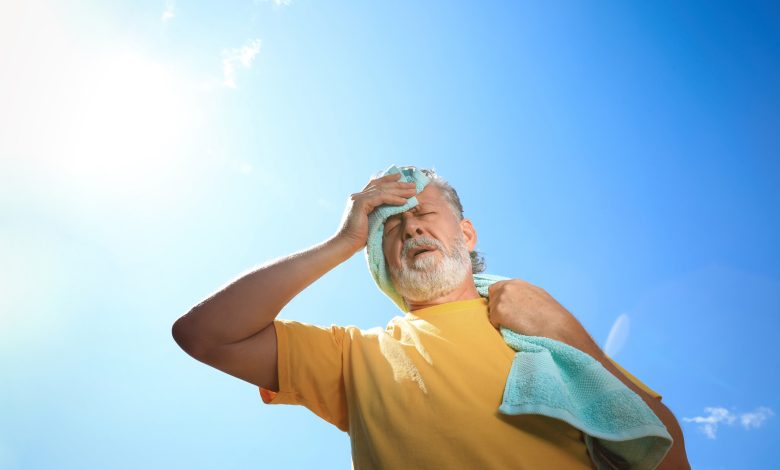Protecting Seniors from Heat-Related Risks

With summer in full swing, the blazing sun isn’t just about picnics and beach days. For our elderly community, it poses a significant health risk. This blog dives deep into the heat-related challenges seniors face and offers insights on identifying signs of heat ailments and lowering such risks.
The Vulnerability of Seniors to Heat
Seniors, especially those living in urban areas, face a heightened threat during heat waves, and statistics show that they are at the forefront when it comes to heat-related mortality rates. While many seniors have an accurate perception of the risks posed by extreme heat, it’s often their socio-economic status and access to resources that elevate their vulnerability. Surprisingly, societal norms and the stigma attached to vulnerability can also act as barriers, preventing them from seeking necessary support.
Additionally, seniors with chronic ailments, such as diabetes, have a magnified risk of complications during scorching conditions. Protective measures like apt clothing, footwear, and consistent hydration, along with avoiding prolonged exposure to the sun, are imperative.
Understanding the symptoms of heat-related illnesses is crucial. Here’s a breakdown:
Heat Exhaustion:
- Pervasive sweating
- Overwhelming fatigue or weakness
- Frequent dizziness or lightheadedness
- Persistent headaches
- Nausea or instances of vomiting
- Muscle cramps
- Cool and damp skin texture
- Accelerated heart rate
- Darkened urine
Heat Stroke:
- Elevated body temperature (above 103°F or 39.4°C)
- Confusion or altered mental status
- Absence of sweating with hot, dry skin
- Quick, pronounced pulse
- Throbbing headache
- Nausea or vomiting
- Dizziness leading to fainting
- Rapid, shallow breathing
- In severe cases, seizures
Heat stroke is particularly dangerous. If you suspect a senior is exhibiting symptoms, it’s imperative to seek immediate medical attention.
Risk Factors
Several elements increase seniors’ susceptibility to heat-related ailments:
- Age: Natural age-associated changes diminish the body’s ability to regulate temperature effectively.
- Medical Conditions: Chronic diseases, such as heart or respiratory issues, amplify risks.
- Medication: Some medicines, like diuretics and beta-blockers, can enhance susceptibility.
- Living Conditions: Seniors living alone or those with limited mobility might not receive timely help or access cooler environments.
- Social Factors: Socially isolated seniors, without regular checks from acquaintances or family, are particularly at risk.
Safeguarding Seniors from Heat Hazards
While the risks are substantial, adopting a few simple precautions can make all the difference:
- Regular fluid intake, irrespective of thirst, is crucial. Water remains the best choice, but alternatives like fruit juices or sports drinks can also replenish lost electrolytes.
- Air-conditioned spaces are ideal refuges. Public places like libraries or malls offer respite if home environments are unsuitable.
- Opt for loose, light-colored, and lightweight attire, complemented by protective hats and sunglasses.
- Engage in strenuous activities during cooler parts of the day and always prioritize breaks.
- Consult healthcare professionals about medications that might enhance heat risks.
- Regular communication with loved ones can act as a safety net during heatwaves.
While the risks seniors face during extreme heat are substantial, knowledge, vigilance, and proactive measures can ensure their safety and well-being.
- Summer’s heat poses significant health risks for seniors.
- Urban seniors are especially vulnerable during heat waves.
- Socio-economic status and limited resources increase vulnerability.
- Societal norms can sometimes prevent seniors from seeking help.
- Seniors with chronic conditions, like diabetes, face higher risks in the heat.
- Symptoms of heat exhaustion include sweating, dizziness, and muscle cramps.
- Heat stroke symptoms: high body temp, confusion, and rapid pulse.
- Immediate medical attention is essential for suspected heat stroke.
- Aging causes changes in temperature-regulating abilities.
- Certain medications can elevate heat-related risks for seniors.
- Seniors living alone or with mobility issues are more vulnerable.
- Hydration is key; water and electrolyte drinks are advised.
- Seeking refuge in air-conditioned places is beneficial.
- Lightweight, light-colored clothing aids in staying cool.
- Avoid strenuous activities during peak heat hours.
- Check medications with healthcare providers for heat-related side effects.
- Maintaining social ties can be a lifesaver during heatwaves.
For more information, visit Wiserr
Hashtags: #Protecting #Seniors #HeatRelated #Risks
Stay Tuned with worldtechpower.com for more Business news.





